Garden work has to be postponed because it is too cold and the ground is frozen. According to the calendar it should be spring, but a look out of the window shows that winter still persists, at least here in Western Europe. This is a classical example how expectations and conventional wisdom as well as scientifically based forecasts can be brutally contradicted and beaten down by reality.
Most of Europeans right now are not overly concerned about the threat of global warming — who could blame them when they have to shovel aside the snow and the supply of firewood or heating oil is dwindling down. Quite a few will get the impression that global warming doesn’t live up to the hype.
Even if thousands of scientists insist, that global warming is real, the snow heaps, the frozen ground, the black ice in the morning are even more real.
Climate change though is indeed happening, that is universally agreed!
Personally I’m still not sure about global warming and I voiced my reservations already in earlier posts. Computer models are still coarse, unsophisticated, and incomplete, most models for instance don’t take the role of cloud and dust cover into account. There is an enormous scientific uncertainty surrounding the effects of clouds and dust (meaning aerosols of various types) which could either keep the warmth trapped (greenhouse effect), or decrease temperatures by reflecting and thereby reducing sunlight. There is even scientific disagreement over the amount of cloud and dust cover. The International Satellite Cloud Climatology Project (ISCCP) shows a decrease in both total cloud cover and high clouds but other research projects show a low-level cloud cover increase at every latitude.
Whatever the results of climate change may be, one has to support any effort to reduce the burning of fossil fuels and other wasteful and unsustainable industrial activities. Global warming may be disputed, but the destruction of natural habitats and the mass extinction of species is solidly documented.
Also indisputable is the steady increase of synthetic chemicals that mostly remain untested for their safety in humans and other species. More than 70,000 different chemical compounds are currently produced and only about 1.6 to 3 percent of industrial produced chemicals have been tested for carcinogenicity. Today traces of about 400 chemicals can be found in human blood and fat tissue, most of them did not even exist in the 1920s.
It is true that a high proportion of both natural and synthetic chemicals are carcinogens, mutagens, teratogens, and clastogens, yet humans and other species have had thousands of years to develop resistance against natural compounds while the living organisms on this planet had no time to adapt to all the recently new introduced synthetic compounds.
http://www.unep.org/pdf/WHO_HSE_PHE_IHE_2013.1_eng.pdf
http://www.reuters.com/article/2013/02/19/us-chemicals-idUSBRE91I0NJ20130219
http://who.int/phe/news/en/index.html
http://www.reuters.com/article/2013/02/19/us-chemicals-idUSBRE91I0NJ20130219
http://who.int/phe/news/en/index.html
This is frightening!
Climate change or global warming though was not the initial impetus to write this post, it was only the (probably by climate change caused) unusual cold spell which gave me time to start writing about a theme that goes around in my head now for weeks and haunts me even in my sleep.
I’m pondering since a long time about the meaning of the term “free market economy”. This is an important issue because the economic structure is a defining characteristic of any society. The economic system is in essence the way in which necessary goods and tools are distributed to the population. Most of the worlds people live in societies with a free market economy and most economists consider free markets as the most efficient way to distribute goods and tools.
But what is a “free market” and are the markets (the distribution services) of Western economies indeed free?
My personal analysis, based on a critical and skeptical way of thinking and reflecting, tells me they are not.
A few examples:
If the poor and needy people of the village would descent onto the market and stand there before the stalls, looking longingly at the offered goods that they cannot afford to buy, and if the sellers would be so deeply moved and heart-stricken that they would give all their ware to them for free, it would be a free market indeed.
What kind of market could be more free than that?
It would also be a free and unregulated market if a customer would draw his pistol and force the stall owner at gunpoint to give him the goods the customer needs. This would be maybe against existing laws and regulations but it would be the consequent, natural, and logical application of a “free market” philosophy.
In any case, laws and regulations are considered by many economists as an impediment of free markets and a hinderance to the free flow and exchange of goods and services, so whats the big deal about taking the freedom to rob a market stall?
It would be of course also a free market, if the stall owner who is facing the mentioned importunate customer instead of handing over the ware would take cover behind the counter and grab his AK47 to riddle the customer with bullets.
You think this second example is over the top? You are deadly wrong! Such kind of incidents are happening all the time, and in a “free market” society anybody who is threatening the sanctity of personal property rights puts his life at risk.
You may rape the elderly lady next door and torture her slowly to death and you still will not be pursued and prosecuted with the same determination and vigor than someone who steals money from banks (which themselves are by any means of definition criminal institutions).
John Dillinger, Jesse James, Bonnie and Clyde, Butch Cassidy, they all died by bullets.
Faced with an epidemic of bank robberies during the 1920s, the Texas Bankers Association established the “Dead Bank Robber Reward Program”, which offered a cash reward of five thousand dollar for the killing of a bank robber (or alleged robber, as was often the case).
Just in November US bank robber Michael J. Webb died in a hail of police bullets.
The property rights of the ruling elites are strictly enforced which means, that not only robbers, but also burglars and thieves are facing death. Texans are allowed to shoot trespassers and burglars (Joe Horn controversy) and home owners in the USA and Britain who shoot and kill intruders most times are not charged with any wrongdoing.
Even shoplifting can be deadly, as the surviving two little children of Shelly Frey, who in December was gunned down by a Walmart security guard in Houston, will remember for the rest of their lives.
Vidal Calloway, another Walmart shoplifter, died two weeks earlier after being subdued by security personal. (On a side note, both shoplifters were African American, could it be that black shoplifters face an increased risk of death?)
Back to the original musings about the “free market economy”.
Another example: It would be a free market if a stall owner together with friends and family would burn down a newly opened stall who offers exactly the same goods and threatens to eat into his business. If you think this example is over the top, you are wrong again, because also this kind of incidents are happening all the time.
Established companies try to cut off material supplies and crucial parts for new companies, try to lure away top managers and experts, assault the rival via patent litigation, and sometime buy a company (hostile takeover) just to shut it down, even if (and especially when) the new competitor has developed a promising and superior technology.
One last example: It would be a free market if a nearby warlord with his militiamen would attack the market, destroy all stalls, take the pretty female sellers as sex slaves and summarily execute the rest.
I have to correct myself: This would of course not be a free market anymore, it would rather be the failed attempt to establish a regulated market. Such kind of actions also happen more often than one would believe, they are only not openly declared as conquest and destruction of markets but rather euphemistically called either just wars, preemptive wars, humanitarian interventions, spreading democracy via regime change, or R2P (responsibility to protect).
I wanted to show and explain with these few examples, that a “free market economy” is not possible and also doesn’t exist anywhere in the world except in a few lawless areas (failed states like Afghanistan, Yemen, Libya, Somalia, Congo), where chaos and brutal force (and drones) rule.
The term “free market economy” is a misnomer, free markets are a fallacy, are an illusion, and beyond that they are a giant deception, a fraudulent scheme, just like the global financial system, global trade, and the Western consumerism based economies as a whole.
The markets in Western countries are not free, they are regulated, and tightly regulated indeed. The laws, rules, regulations, and limits are set by politicians and by government regulatory agencies, which are both corrupt and controlled by industrialists.
Western nations have eliminated corruption by institutionalizing it and renaming it lobbying. The corporations deploy armies of lobbyists to ensure that legislative bodies create laws with easily exploitable loopholes, the corporations furthermore deploy armies of lawyers to make use of these loopholes, reinterpret the laws, paralyze the judiciary, and stretch the legal interpretations to (and sometimes beyond) the limit.
Markets in Western countries are tightly regulated, and they serve the moneyed elites well. The basic function of these markets is the rule of supply and demand, which should in theory automatically regulate production volumes as well as prices and thereby allow the distribution of necessary goods to the population. High demand causes shortages which lead to higher prices which are an incentive to increase production volumes. High production volumes lead to surpluses, which causes prices to fall. Lower prices mean lower profits and lead to production cuts.
This seems to be a perfect negative feedback loop but it has one fundamental flaw: Demand is not the same as need, demand is depending on purchasing power, demand is only sufficiently regulating the distribution of goods to the affluent, it leaves to poor, the penniless, the disenfranchised out of the game.
In other words: Product development and production volumes are only controlled by the needs of the wealthy, which can greatly differ from the needs of the non-wealthy.
The regulated markets of Western economies serve the additional purposes of destroying small local productions and local economic structures by distributing industrial produced food and cheap crap from oversee sweatshops and factories.
The rich get what they need and want, the rest gets the cheap stuff which easily breaks and doesn’t last long. The through advertising brainwashed people spend their hard earned little money to buy gimmicks which they don’t really need and which only distract them from the really important things in life. If people run out of money they are encouraged to take loans, thereby becoming debt slaves of the banks.
The culmination of this scheme and its clearest expression and manifestation are supermarkets, shopping malls, and superstores. All meant to disperse cheap and most times unnecessary or useless stuff.
So, the rules and regulations are made by the wealthy, the rule of supply and demand serves the wealthy, the poor get the glass pearls or are left to themselves. Rich nations (in essence the colonial powers and their trusted allies) can afford to keep the poor population quiet with charity handouts and cheap gadgets from China, governments with more meager resources have to deploy police or military.
The most important tool to keep the disenfranchised quiet and passive though is the omnipresent and worldwide active corporate media propaganda machine which brainwashes, indoctrinates, reeducates, deceives, misinforms, dazes around the clock via TV, social media, films (Hollywood dream machine), newspapers, radio, books, and any other imaginable kind of media.
Religious indoctrination and standardized school curriculums are important tools too.
Free markets are impossible, small local, well designed and regulated markets can be useful in some areas of an egalitarian society where the purchasing power is evenly distributed. The basic needs, the material necessities of live though (unpolluted air, clean water, healthy natural food, shelter, cloth) should be guaranteed by a direct delivery system, organized and controlled on various levels (neighborhoods, municipalities, districts, states), and preferably on the smallest viable local level.
That is all what I can tell for now, and some readers may ask, what the point of this post and the final conclusion are.
So, if somebody really wants to listen, here are my conclusions, here is what I personally did and intend to do:
I don’t believe the economists and don’t want to participate in this fraudulent scheme. I will do everything what I can possibly do to support the local economy, will rely on the (noncriminal) informal sector and participate in the alternative economy (barter, farmers markets, flea markets, local exchange trading, time banks, neighborhood help (family to family help), counter currencies, co-ops, transition towns, permaculture, subsistence farming and gardening).
I reduced already my connections to (and my dependency on) big support networks as much as possible. No TV, no cell phone, no credit card, no debts.
I don’t wait for the government to fix the economy. It cannot be fixed and any new plans and schemes are only meant to help the wealthy at the cost of the rest.
I have designed and applied the necessary austerity measures by myself.

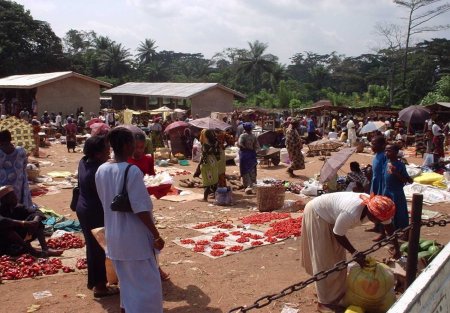
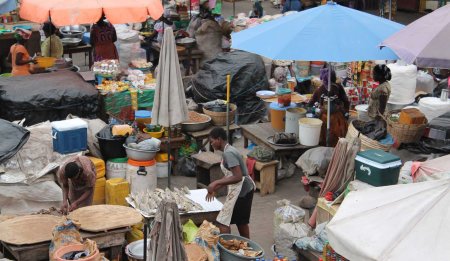


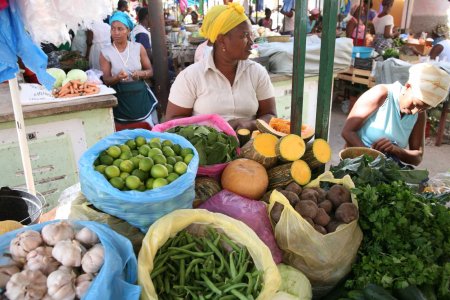
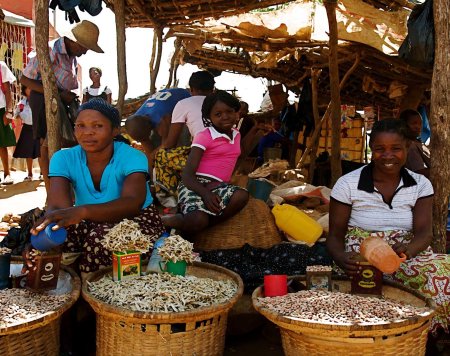
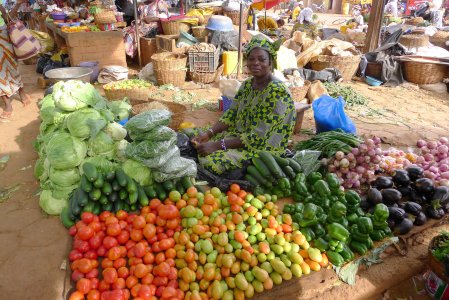
Keine Kommentare:
Kommentar veröffentlichen